Background

PDCA Basics
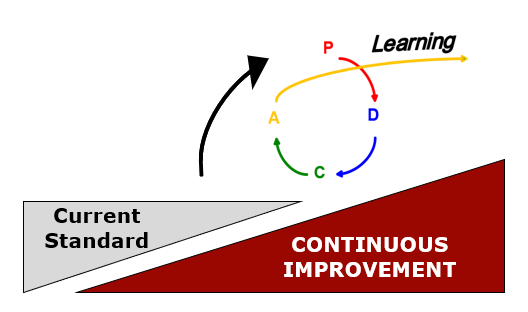
Plan Do Check Act (PDCA) is a framework that provides a methodical approach to problem solving and continuous improvement.
By definition the cycle of improving and ever raising the standards never stops!
Improvement is infinite!
It’s not just a 4 step cycle, it’s a way of thinking!
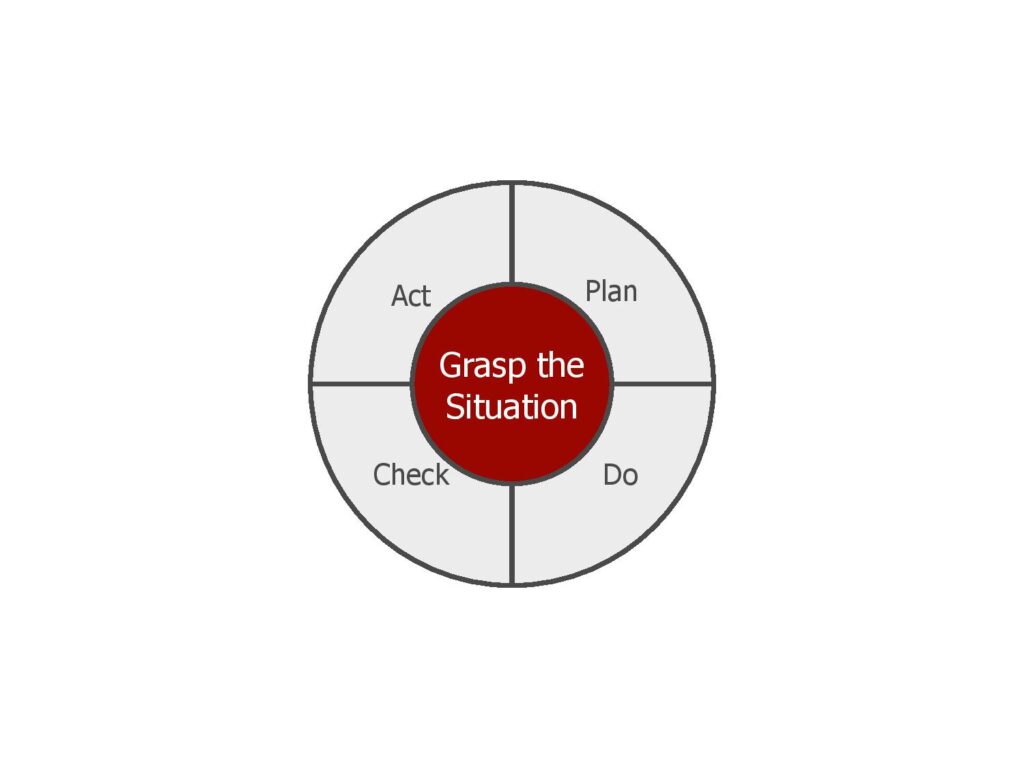
PDCA is an improvement cycle based on the scientific method of proposing a change in a process, implementing the change, measuring the results, and taking appropriate action.
It also is known as the Deming Cycle or Deming Wheel after W. Edwards Deming, who introduced the concept in Japan in the 1950’s.
The PDCA cycle has four stages:
- PLAN :- Determine goals for a process and needed changes to achieve them.
- DO :- Implement the changes.
- CHECK :- Evaluate the results in terms of performance.
- ACT :- Standardise and stabilise the change or begin the cycle again, depending on the results.

Why use P-D-C-A?
The PDCA approach is a structured way of thinking about solving problems methodically by using a repeatable process.
It combats the traditional problem solving ways of jumping straight to the solution, without any real forethought or justification for actions.
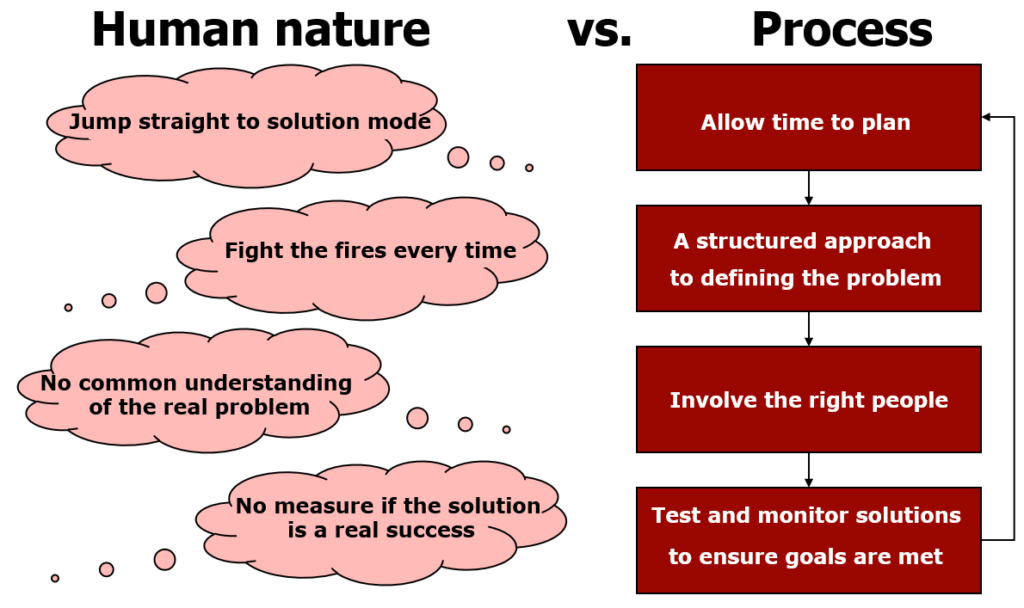
Jumping to solutions is the survival instinct approach of human nature versus the repeatable structure of PDCA.
Since it’s a process, it is repeatable – unlike the disorganised, random approach often employed by fire fighters.
People like to fire fight, they feel by “solving” problems EVERY day, they are contributing to keeping the business going.
What is actually happening is that they are never reaching the true root cause of their problems. In fact they are holding the business back from improving by continually meeting the same problems again and again.
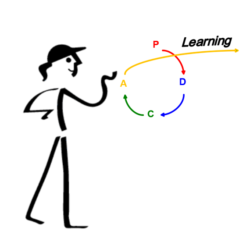
By having a PDCA “mindset” we can harness the more structured Problem Solving techniques such as Rapid Problem Solving to systematically and continuously improve.

Move from Traditional Thinking to PDCA Thinking!
Traditonal “Thinking Way” of pDpD (try, fail, try, fail)
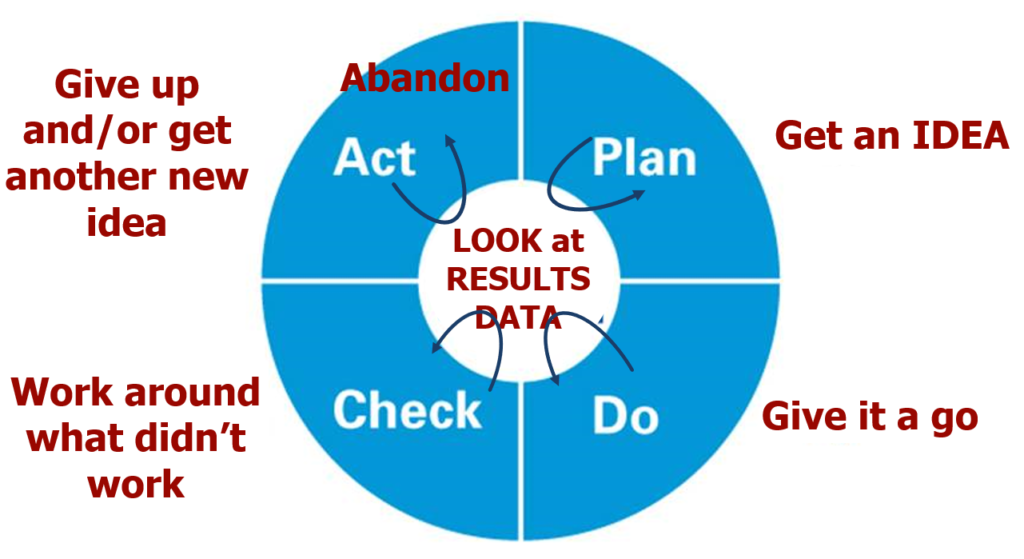
Move To Plan – Do – Check – Act “Thinking Way”
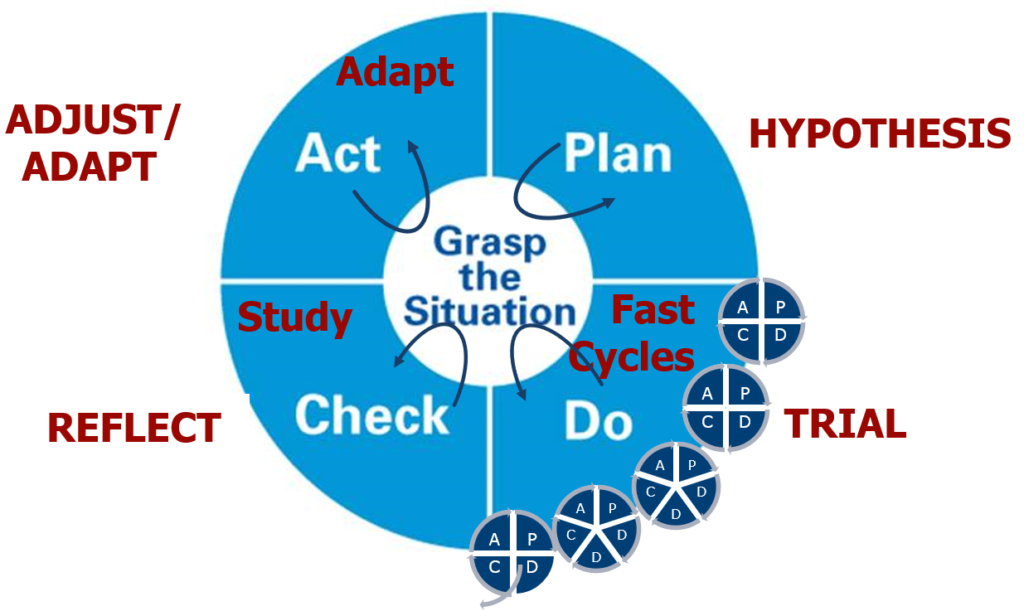
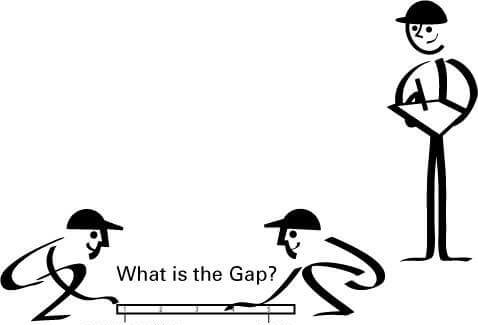
Robust Problem Solving is what makes the organisation successful.
PDCA is the “Engine” that drives Lean Thinking & Practice by :-
- Highlighting Problems – so improvements can be made.
- Making abnormal from normal visible right now.
- Helps team members do their jobs well.
- Helps team members know when to ask for help.
- Helps managers know what questions to ask.
- Leaders need to live and teach PDCA – through frequent and complete cycles reflective learning.
- Involve everyone in problem solving.
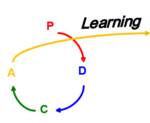
So if PDCA is the engine that drives Lean , how do we build a culture of PDCA?
By breaking with the stereotype that “having a problem is bad.” It’s natural that there are some problems in our work places. If we reinforce the view that having a problem is bad, some team members may not inform problems to their supervisor or manager.

It is therefore imperative that we make abnormal situations visible immediately. This helps people to do their jobs better, it tells people know when to ask for help (Pull the Andon Signal) and it helps management know what questions to ask.
Practice PDCA! Solve real business problems (based on NEED) and make improvements in the way work is performed: at each level of the organisation, in each activity of the company, in real time, at the root cause – At the real PLACE, to see the real THING and to understand the real FACT, to address real PROBLEMS.
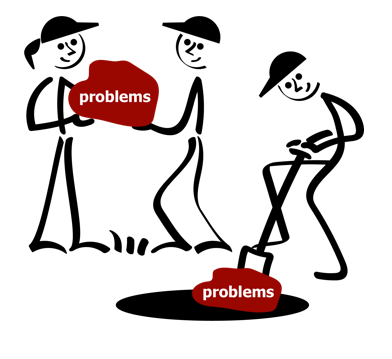
Finding Problems and taking Countermeauses to eliminate them will lead to Continuous Improvement.
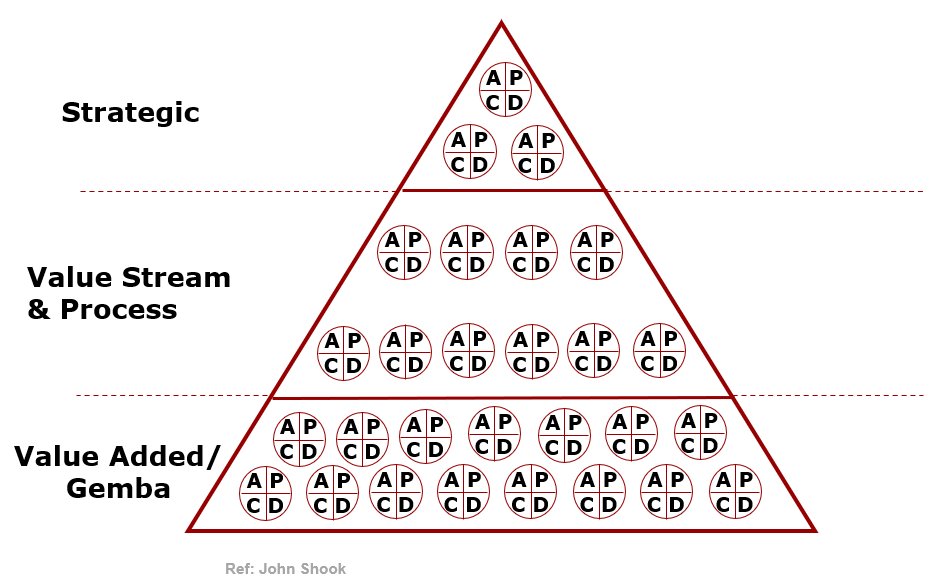
Depending on your role in the organisation, there are different problems to solve using PDCA.
Everyone needs to be involved in developing processes with steps that only create value for customers.
Now move on to the next Topic.